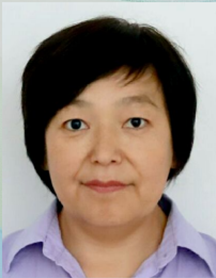
Togzhanova Zhanar
Lecturer
The Department of «Smart technologies in engineering»
Master of technical sciences
email: toghzhanova@list.ru
|
№ |
Название организации |
Начало месяцгод |
Оканчание месяцгод |
|
1 |
Алматинский университет энергетики и связи имени Гумарбека Даукеева, кафедра «Электроэнергетические сети» |
01.09.2021 |
|
|
2 |
«Казахский национальный аграрный университет», старший преподаватель кафедры «Энергосбережение и автоматика» |
01.09.2018 |
31.09.2021 |
|
3 |
Казахский национальный уиниверситет им. аль-Фараби, старший преподаватель кафедры «Кафедра теплофизики и технической физики» |
01.09.2016 |
31.08.2017 |
|
4 |
Казахский национальный технический университет им.К. И. Сатпаева, старший преподаватель кафедры «Электроэнергетика и автоматизация технологических комплексов» |
02.09.2013 |
10.07.2016 |
|
5 |
Казахский национальный технический университет им.К. И. Сатпаева, старший преподаватель кафедры «Электроэнергетика и автоматизация технологических комплексов» |
26.09.2008 |
01.09.2012 |
|
6 |
Казахский национальный технический университет им.К. И. Сатпаева, преподаватель кафедры «Электроэнергетика и автоматизация технологических комплексов» |
31.12.2006 |
26.09.2008 |
|
7 |
Казахский национальный технический университет им.К. И. Сатпаева, ассистент кафедры «Электроэнергетика и автоматизация технологических комплексов» |
03.12.2005 |
31.08.2006 |
|
8 |
Казахский национальный технический университет им.К. И. Сатпаева, инженер 1 категории кафедры «Электроэнергетика и автоматизация технологических комплексов» |
25.09.1998 |
02.12.2002 |
|
9 |
Казахский национальный технический университет им.К. И. Сатпаева, инженер кафедры «Электроэнергетика и автоматизация технологических комплексов» |
29.11.1996 |
25.09.1998 |
12.Отметки о судимости – нет
1991 - 1996 Казахский национальный технический университет им. К. И. Сатпаева. Специальность – 2105 – электропривод и автоматизация промышленных установок и технологических комплексов Квалификация – горный инженер электромеханик.
2012 - 2014 Гуманитарный Университет транспорта и права имени Д. А. Кунаева. 6М071800- Электроэнергетика, магистр технических наук.
1. Renewable energy sources;
2. Improvement of control systems for electric drive of mechanical units in technological processes
Publications
1. ФОТОЭЛЕКТРЛІК ЖҮЙЕЛЕРДЕГІ АҚАУЛАРДЫ АНЫҚТАУ ЖӘНЕ ДИАГНОСТИКАЛЫҚ ӘДІСТЕРГЕ ШОЛУ УДК 620.92: 621.311.001.57
2. Пути усточивого развития энергосбережения в Республике Казахстан. Журнал «Точная наука», 24 января 2022 г. ББК Ч 214(2Рос-4Ке)73я431 ISSN 2500-1132 УДК 378.001 Кемерово